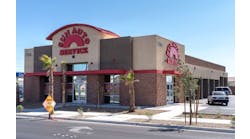Aug. 30, 2017—A new report from GMB North America examines the costs of selling, distributing, and installing low quality auto parts, and illustrates how many of these costs are hidden.
Created for auto parts distributors, retailers, and installers, the white paper uses real-world examples and data to explain how expensive it can be to trade in low quality parts.
"The auto parts industry is complex, and it's easier than ever to lose track of costs,” said Sarah Porter, marketing manager at GMB. "Every company in the parts supply chain provides customer service and manages part returns, but these services are not needed every time a part is sold. How do you assign customer service or return management costs to an individual part sale? If you can't, you might be selling parts that cost your company money."
"The High Cost of Low Quality Parts" assigns both profits and costs to parts based on estimated return rates and illustrates how a low quality part with a high rate of return is unprofitable. While the white paper uses estimated figures for part failure rates, profits, and return costs, it illustrates that many of the costs associated with selling a low quality part aren't obvious.
“If a part is defective or fails prematurely, dealing with the defect or the failure can take a lot of time,” explained Porter. "Tracking this time is hard, as it's difficult to categorize. Not to mention, a lot of companies aren't setup to track this time in the first place."
The white paper also evaluates how selling or installing a low quality part affects retailers and installers. An installer that has to remove and replace a defective part can receive a negative online review, as can a retailer that sells a defective part. This review can have a negative impact on business growth, in addition to occupying staff.
“If you're a retailer or installer, you know that defective parts can often lead to bad reviews. That can have a corrosive effect on your business and can even limit growth," said Porter. "And if retailers and installers aren't growing as fast as they could be, that limits growth for distributors as well. Everyone in the supply chain is affected when the consumer buys a bad part."


